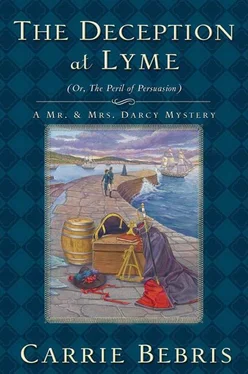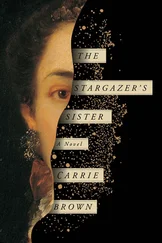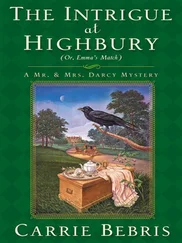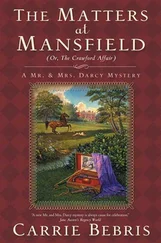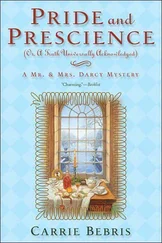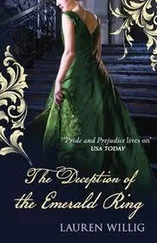Forgotten by the toddlers, that is. Despite Mrs. Harville’s assurances, Elizabeth still could not quite comprehend it. Nor the earlier flight of Bald Betsy off the dressing table at Mangled Maggie’s stuffed hands. Lily-Anne was not by nature an aggressive child, nor given to violent outbursts. What an aberrant day her daughter was having! But then, there had been nothing normal about this day for any of them.
Lily-Anne, in fact, was probably the least affected by recent events. She had not even witnessed the lightning bolt that destroyed the ship and which, in Elizabeth’s mind, had signaled the start of the chaos that claimed them all day. Lily had been looking in the other direction entirely, toward the harbor side of the Cobb. Sea, Mamma, sea!
Toward the section of the Cobb where they had seen Mrs. Clay—Lady Elliot—before her fall. An unsettling sensation passed through Elizabeth. Had she misunderstood Lily?
See, Mamma! See!
A lump rising in her throat, Elizabeth tried to recall how far along the seawall they had walked after passing Lady Elliot.
Not far enough.
Not far enough for Lady Elliot to have been out of Lily’s view. Not far enough to silence the question now overtaking Elizabeth. Had Lily-Anne witnessed Lady Elliot’s fall? Worse, had the accident been somehow preventable, if only Elizabeth had realized what her daughter had been trying to communicate? If only they had been standing closer when Lady Elliot lost her balance?
See, Mamma! See!
Lily-Anne’s small voice echoed in Elizabeth’s mind. Then, unbidden, so did another.
Elliot. Pushed.
They set forward, treading back, with feelings unutterable, the ground which so lately, so very lately, and so light of heart, they had passed along.
—Persuasion
Elizabeth could not later have repeated the words she stammered while quitting the Harvilles’ home, for the disturbing notion forming in her mind occupied it so entirely that it forced out nearly all else. She only hoped that she uttered something intelligible, and relied upon Darcy to convey the proper sentiments one expresses when taking leave of brand-new acquaintances with whom one has nursed a fatally injured woman, delivered a baby, and navigated a custody melee between a baronet and the late mother’s former paramour.
At last she and Darcy were alone and headed back to their lodgings. The seafront Walk had dried enough to permit Lily-Anne to toddle between them as they each held one of her hands. Elizabeth’s thoughts were jumbled: Lady Elliot’s voice mixed with images of Lily-Anne pushing Ben, and Betsy tumbling off the dressing table.
“I have been contemplating Lady Elliot’s fall,” Elizabeth said.
“Her accident and all that resulted from it is an event neither of us will soon forget.”
They were nearly to the end of the Walk. Ahead stood the Assembly Rooms, where well-dressed ladies and gentlemen were begun to arrive for some gay event. Their merriment was jarringly discordant with her own sober thoughts.
She stopped. Lily-Anne strained to continue, tugging on their hands and leaning forward with all her weight. This conversation was probably best postponed until it could be carried on undistracted, but Elizabeth needed Darcy to help her throw off the disquiet that had taken hold of her. “I fear it might have been no accident.”
“What has led you to such a notion?”
She related the incident with the dolls, and how it, when taken in context of other events of the day and Lady Elliot’s own few words, had caused her to reconsider their meaning.
His expression settled into a pensive frown. “Have you asked Lily-Anne what she saw?”
“Not yet.” Even could their daughter recall what she had seen, could she articulate it well enough for them to understand? Moreover, did they want her to recall so disturbing an event?
Darcy lifted their daughter. She twisted in his arms, trying to return to the ground. “Lily, your mother has an important question for you.” The child stilled.
Elizabeth struggled to formulate her query. “Lily—” How did one ask a young child such a thing? “Lily, do you remember when we took a walk this morning with Aunt Georgiana, before the rain?”
Lily-Anne pointed toward the Cobb. “Walk.”
“Do you remember how we found a lady who was hurt, and then Aunt Georgiana and her friend took you back to our cottage?”
She smiled and spoke a string of syllables that Elizabeth interpreted as “Sir Laurence”—indeed a mouthful for someone just learning to speak.
“When we were walking, did you see the lady standing on the big wall? Before she got hurt?”
“Walk!” She threw her weight against Darcy’s arm, nearly landing on the ground faster than intended. Darcy, practiced with their daughter’s unexpected lunges, reacted quickly enough to prevent her tumbling out of his grasp.
“Lily—”
“Walk!”
Lily’s attention could admit no other focus, and the evening witching hour known to all mothers and nurserymaids drew nigh. “This has been a long day for Lily, as well,” she said. “Let us simply go home and try again another time, if at all.”
They continued homeward. “Are you hoping she saw what happened,” Darcy asked, “or hoping she did not?”
“I honestly do not know,” she admitted. “And you?”
“However Lady Elliot’s fall came about, I hope our daughter did not witness it. If she did, I hope it is forgotten. There are other ways—more reliable ways than the word of a child—to confirm or dispel your doubts about Lady Elliot’s demise.”
“Do you believe my suspicion reasonable?”
“Your instincts have proved valid in the past, but I also believe an intellect fatigued by events such as we have experienced today is more susceptible to anxiety and misinterpretation than usual. Let us revisit this subject on the morrow, when our minds are rested.”
“If you are promising that all will look better in the morning, I may retire as soon as we reach the cottage.”
“Have you forgotten our engagement with Lieutenant St. Clair? Or do you wish me to convey your regrets?”
Indeed, she had entirely forgotten their expected visitor. “Oh! No—no regrets. Our appointment this evening did escape my memory, but I would not forgo the pleasure of meeting Lieutenant St. Clair. It is half our reason for coming to Lyme.”
“Not half, but much anticipated.”
Lieutenant Andrew St. Clair had served in the Royal Navy with Darcy’s late cousin Gerard, younger brother of Colonel Fitzwilliam. St. Clair, in fact, had been first lieutenant aboard the Magna Carta at the time of Gerard’s death. Now recently returned to England after numerous foreign deployments, St. Clair had written to Gerard’s family stating that he had in his possession Gerard’s sea chest, which he had promised to deliver in person. As Darcy and Elizabeth had already planned a journey to Lyme upon quitting Colonel Fitzwilliam’s house, they had arranged to meet St. Clair here.
Though Elizabeth had never met Gerard, he had been a beloved cousin, and remained a subject of conversation among Darcy, Georgiana, and Colonel Fitzwilliam. Elizabeth hoped that tonight’s meeting would provide an opportunity to learn more about the promising young man they remembered. Darcy, she knew, had been looking forward to the appointment far more than the seabathing and other diversions that had first inspired their interest in a seaside holiday.
When they reached their cottage, it was not an early Lieutenant St. Clair, but another visitor whom they found just emerging from the house. Sir Laurence greeted them warmly.
Читать дальше
